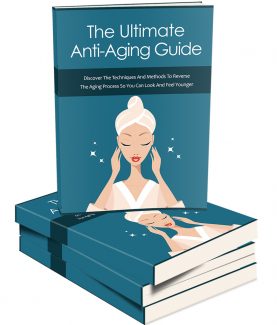 License Type: Master Resell Rights
License Type: Master Resell Rights  File Type: ZIP
File Type: ZIP
 SKU: 58933
SKU: 58933  Shipping: Online Download
Shipping: Online Download
Ebook Sample Content Preview:
This is where vasodilators come in. Things like garlic extract, vinpocetine and ginkgo biloba all offer this increased energy by increasing the diameter of the blood vessels. This can also be very good for those with high blood pressure! These allow more blood, oxygen and nutrients to be directed toward the brain, helping you to feel more alert and more awake. As mentioned, you can also get a lot of benefit from nutrients like iron and B12 which help the body to create more red blood cells. This very simple change is very often enough to increase the amount of oxygen and nutrients making their way around the body to the brain and once again to supercharge your energy levels.
Mood and Learning
As we get older, we often start to produce less of the most important neurochemicals – whether it’s serotonin or dopamine. Dopamine is one of the neurotransmitters most associated with attention, which also correlates to memory (the more focused you are, the more likely you are to remember something – often the things you’ve ‘forgotten’ are things you never listened to in the first place…).
Dopamine is also correlated with BDNF – Bran Derived Neurotrophic Factor. Along with nerve growth factor, BDNF is one of the key players in neuroplasticity. As we age, the rate at which are brains adapt and grow changes and this results in a poorer ability to learn new skills and ideas, along with a reduced interest in doing so.
Guess what you can consume to increase your dopamine levels, gain focus and enhance learning? Good old caffeine! And perhaps by no coincidence, caffeine consumption is also associated with reduced risk of Alzheimer’s. Dopamine is also related to your mood, as are other neurochemicals that decrease as we age – such as serotonin, which is often known as the ‘happiness hormone’. Many of these neurochemicals are made from simple amino acids (the building blocks of protein) like tryptophan and l-tyrosine. Eat more eggs (which are also packed with the brain-boosting choline) and your brain will be stronger and you’ll be less cranky.
Numerous other nootropic compounds can help to increase brain plasticity and there are some very fascinating studies that have shown we might someday be able to restore our brains to infant-like levels of plasticity (one study demonstrated it could be possible to teach participants perfect pitch with certain nootropics not-yet commercially available).
- License: Master Resell Rights
- Category:Ebooks
- Tags:2016 Ebooks Master Resale Rights








